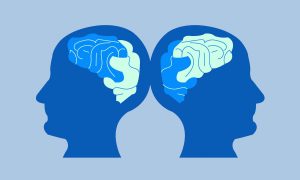Post published in October, 2011
In August I took a two-week vacation during which I was totally disconnected—off of emails, phone calls, any kind of electronic communication. I became (by the second week) very comfortable with my slowed down and uninterrupted life. I adjusted enough during that short span of two weeks that when I came back to the office, I was—for a while—a kind of foreigner there.
It was hard for me to pay attention to my 250 daily business emails. I wanted to chat about possible future company retreats and the value of solitude. My colleagues looked at me bemused, and tried to talk about WORK. In two weeks away I had weaned myself of a communication addiction. I was even sleeping normally.
That was back at the end of August. Now it’s October, and I have fully recovered. I am essentially back to the way I was before leaving … and happy—taking pleasure in too many emails, and starting my workday at 4 AM. I have re-adjusted to this version of my normal life.
What is it that allows me, or anyone, to live happily in two nearly opposite states of mind? I think this may be a clue to how we can thrive as a species occupying nearly every corner of this planet. We really can adjust to nearly anything. I cannot, however, traverse this space between these two different versions of myself in an instant or at will. I am or become those things in response to my environment, and each adaptation involves a loss of some kind.
I remember when—after living for a number of years in Japan—I was fluent in Japanese. I also remember how my English atrophied from lack of use. I sounded like a blithering idiot in my native language. If I were to live in a cave for a year—deprived of books, conversation, any social interaction—I imagine that this way of living would become “normal” to me. And deep into this new normal I would forget many of those habits of mind and behavior that make me acceptable company to others. My competence in solitude would be accompanied by a concomitant loss of social abilities.
What is it that allows me, or anyone, to live happily in two nearly opposite states of mind?
One key to this adaptability is how memory works. Our memory is not like an archive that preserves things intact, just exactly as they were originally put there. Memories are actually overwritten or re-saved every time we revisit them. Because of this, they tend to evolve over time. Women forget what it was really like when they were having a baby. (If everyone remembered this with crystalline clarity, the world would certainly have fewer children.) I think everyone eventually forgets what it was like to be young. I have already forgotten what it felt like to have nothing to do. I think this is natural—we forget and re-habituate—and this allows most of us to be comfortable with the way things are.
This forgetfulness and adaptation are good things in the sense that I am not now constantly longing for the simple life. It is a bad thing in that, as I change, I can easily acquire undesirable habits and behaviors—I can even forget who I once was.
Who we are certainly changes with time, and I think the direction of that change is driven significantly by our environment and not, as we might like to believe, held in place by a firmly held and immutable “self” that is impervious to outside influence.
What is to a person a “self,” is for an organization, its brand. Your organizational brand changes as your organization does, and this can be planned or not—it can be inside or outside of your active control.
What is to a person a “self,” is for an organization, its brand. Your organizational brand changes as your organization does, and this can be planned or not—it can be inside or outside of your active control.
Organizational culture is affected by outside circumstances as much as individuals are. They adapt and change in accordance with these circumstances, and this is generally good and necessary.
With this change, though, comes loss. Organizations adapt and forget. This highlights the need for all organizations to have written statements of their mission, vision and values. Documents that clarify and record where they are, where they are going and why.
I think it makes sense for these to be living documents, used to manage and direct change, and to prevent circumstance from becoming overly important in dictating organizational destiny.
Part of our own company vision statement reads, “to produce creative work that is effective and beautiful, but to do this without ever becoming assholes personally or professionally.”
We wrote this down so we would not forget.
Addendum:
You might notice that our organizational vision has grown. It is now, “Finding creative ways to help our clients make the world better.” We are less worried about devolving into assholes … not that we should not continually bear that in mind.



In summary you describe situational proximity and habitual frequency.